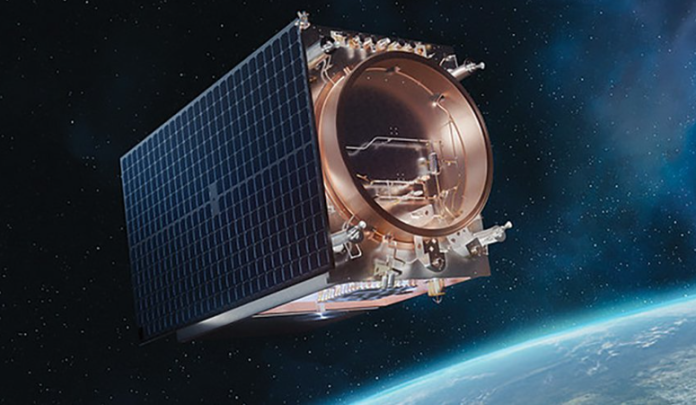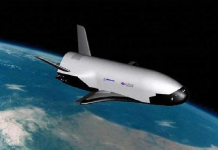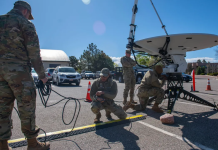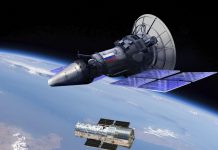COLORADO SPRINGS, Colorado — The first of a new series of digitally-born satellite buses that can operate in multiple orbital regimes is set to launch into space later this year, according to manufacturer Lockheed Martin.
The spacecraft, named the LM 400, is a mid-sized satellite bus that can operate in low-Earth, medium-Earth or geosynchronous orbit, said Dan Tenney, Lockheed Martin Space’s vice president of strategy and business development.
The company announced in April it had completed electromagnetic interference/electromagnetic compatibility testing on the satellite and is working toward completion of thermal vacuum testing ahead of a planned 2023 launch of a tech demonstrator.
The LM 400 was “all born digitally, meaning we can move from the laptop to the hardware seamlessly,” Tenney said during a media briefing.
“So, even though it’s hardware, we’ve used AI and other capabilities to help us develop the LM 400.”
Having that “digital touchpoint” for the LM 400 will allow the company to produce and deliver satellites “faster than ever before,” as well as “flex the design in fascinating ways we haven’t been able to do before,” said Lockheed Martin Space’s global security senior director Paul Pelley.
“If we want to change something in the model — for example, say I make a bigger structure — all the models are connected together,” Pelley said. “A bigger structure means more mass,” and you can instantly see how that impacts the propulsion system “instead of having to go through an endless series of design reviews to accommodate that. Because it’s digital, you can actually see the impact of those changes.”
This versatility allows the LM 400 to “work across a wide spectrum of missions,” including remote sensing and imaging, communications, radar and persistent surveillance, he said.
The first LM 400 tech demonstrator will include a narrowband communications electronically steered array payload, also produced by Lockheed Martin, he added. Another tech demonstrator, expected to launch in 2024, will test a synthetic aperture radar-capable electronically steered array, according to a company release.
The Space Force selected the LM 400 as one of the satellite buses for its medium-Earth orbit Missile Track Custody program, Tenney said.
Lockheed Martin will provide the vehicle to Raytheon Intelligence and Space, which will develop the mission payload, with the goal of putting the system in orbit by 2026, a Raytheon release said.





